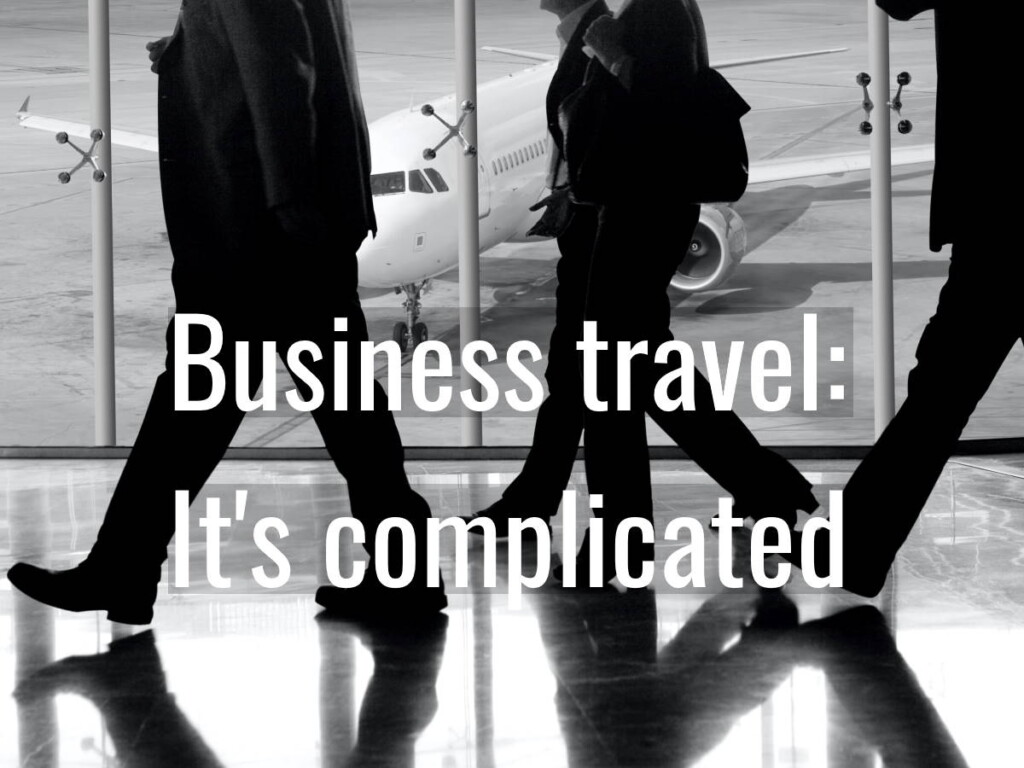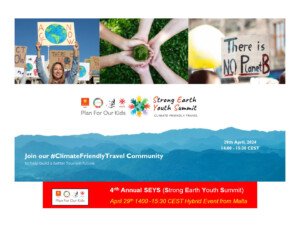Business travel recovery under way in Asia Pacific … but it’s complicated

Business travel in Asia Pacific — and globally — is recovering strongly post-COVID, along with the tourism industry more generally.
However, the rebound is complicated by lingering concerns about health and safety (the duty of care employers and travel managers should have to business travellers), as well as ESG (environmental, social, and governance) worries.
Delegates heard about this on the first day of the PATA – GBTA APAC Travel Summit 2022.
Themed “Getting Back to Business Travel, Tourism, and MICE”, the event is taking place December 8 – 9, 2022 at the newly-rebuilt Queen Sirikit National Convention Centre in Bangkok, Thailand.
[Disclaimer: This post is a ‘hot take’ from the first day, December 8, published the morning after. Your correspondent jotted down the gist of what he heard during the sessions, and may have mistyped, misunderstood, or simply missed something.]
Topics
- Statistics and trends
- On BCorp, sustainabilty, and Travelyst
- Tech won’t supplant the face-to-face meeting, but remains important
- Eight trends shaping travel management to 2030
- Travel is a beneficiary of the most interesting time in human history
- Incentives to change for the better
- Aviation needs better tools and technologies for climate change mitigation
- Read other “GT” coverage of events
Statistics and trends
At the top of the program, Pacific Asia Travel Association (PATA) President & CEO Liz Ortiguera said that every week she was hearing more and more good news for Asia Pacific travel & tourism.
Global Business Travel Association (GBTA) CEO Suzanne Nuefang backed that optimism, citing statistics showing that global business travel will end 2022 at 60% of 2019 (pre-COVID) levels, with 2023 levels predicted to reach 80% of 2019.
In 2022, Asia Pacific leads the world in corporate travel with a plurality of 44% of the total. The region is leading the recovery too; travelling for business at 66% of pre-COVID levels in 2022.
According to Ms Ortiguera, there are six megatrends driving travel & tourism:
- The conscious traveller (87% of respondents of a survey think a social and environmental consciousness is important; 81% of respondents want the money they spend to benefit locals in the destination.);
- Conscious communities/destinations (a destination marketing and management organisation mindset; dispersion strategies; community-centred tourism; high-value travellers; work visas and digital nomadism; improved staff engagement);
- An event-led recovery for Asia Pacific;
- Wellness travel;
- Authenticity and a sense of place; and
- Multi-purpose and longer trips (including ‘bleisure’, combining business with leisure)
Ms Nuefang pointed out that while Asia Pacific leads the world in business travel, the big nations, such as China, dominate business travel spend in Asia Pacific. (Yet due its zero-COVID policies, China has barely contributed to the recovery.)
At the other end of the scale, many of the smaller Asia Pacific nations, such as Malaysia, Philippines, and Singapore. which together account for a tiny fraction of regional business travel, have seen huge recovery rates off low bases. For example, Singapore’s business travel is set to triple in 2022 over 2021.
It seems that after a couple of years of COVID lockdown-induced teleconferencing, there is a hunger for face-to-face meetings.
Ms Nuefang presented five trends related to business travel:
- New opportunities (digital nomadism; corporate travel managers at the corporate strategy table);
- A people-first approach;
- Self-servicing (perhaps due to staff shortages);
- Digitalisation; and
- Sustainability (initiate or self-regulate what policymakers might eventually impose).
On BCorp, sustainabilty, and Travelyst
Ms Neufang then sat down with Intrepid Travel Cofounder and Travelyst Chairman Darrell Wade for a “fireside chat”. (There was no fire.)
They talked about BCorp certification, which Mr Wade described as a legal structure that companies can adopt to respond to and be accountable to other stakeholders beyond shareholders. Mr Wade and his partners at Intrepid wanted to “embed a legacy”; to ensure that their wider stakeholder responsibilities continued in perpetuity.
On sustainability, Mr Wade wrote it off as “just talk until 12 – 18 months ago”. That’s when sustainability’s methodologies and processes became much more serious discussion topics. The number one topic at the recent World Travel & Tourism Council (WTTC) event was sustainability, he said. Mr Wade described last year’s COP 26 in Glasgow as “a penny-drop moment for our industry” in terms of its relationship to climate change.
Sustainability is “real now, not just talk”, and it has to start with measurement.
The smart rationale behind Travelyst, for which Mr Wade credits Harry Windsor, is to give customers what they want: A simple, verified, and authoritative means to make better travel choices.
The devil is in the detail and there is a lot of detail.
Travelyst’s six founding multinational corporations either have huge customer bases or significant supply chains. According to Mr Wade, the corporates understood that regardless of their marketplace competitiveness, they are all impacted by the two big issues of climate change and biodiversity loss.
So the competitors-turned-collaborators agreed on rules that would manifest as an algorithm that gives consumers the confidence to pick and choose travel on more traditional factors (theirs tastes, budget, the experiences they seek) knowing that whatever they choose will tick all the right sustainability boxes.
The Travelyst algorithm is not publicly available (to prevent it being gamed) but the criteria that feed into the algorithm are available, he said.
Tech won’t supplant the face-to-face meeting, but remains important
Xpdite Capital Partners Founder & CEO Bart Bellers reassured the audience that digital meetings technology won’t replace face-to-face business travel. (Such technology has been available for 30 years e.g. CU See Me.)
However, the way one travels matters, as do, presumably, the digital technologies that enable that. With ‘bleisure’ and remote work trending, the technology that supports that to the satisfaction of employers and employees will be important too.
Cybersecurity technologies are essential for countering espionage attempts, denying denial of service attacks, and protecting customer data.
Automation technologies are becoming more important for jobs no-one wants to do, including in hospitality.
Ben Wedlock, Senior VP of Global Sales APAC for BCD Travel, discussed areas that employers should work on to better attract and retain talent:
- Image (is there underlying reputational damage?);
- DEI (expand recruitment channels; reduce barriers to entry)
- Traveller wellbeing (solicit input; offer perks that resonate)
- Technology (digital workplace and touchpoints)
Eight trends shaping travel management to 2030
In this breakout session (your correspondent could only attend one), the moderators Paul Tilstone and Mike Orchard, both of FESTIVE ROAD, laid out some macro changes affecting corporate travel management to 2030:
- Future of work: dispersed but not forgotten (‘the great resignation’ an opportunity to drive ‘the great attraction’);
- ESG at the purposeful core (including, especially, ‘S’ for sustainability);
- It was always about the meeting (the integration of travel and meetings that few companies have coordinated well);
- The whole trip experience (traveller at the core; duty of care; travellers adhere to policy and preferred suppliers as the right fit; autonomy and protection);
- Dynamic content, the true king (deep and rich content aggregation from multiple sources; align traveller and company objectives);
- API explosion brings buyer empowerment (knit together niche services for customised programs);
- Hail to the storytellers (data everywhere; keystrokes and clicks; challenge to consolidate; bring other data — health, CRM — to create and measure new forms of KPI; tell stories to enhance stakeholder value); and
- Take the lead or be directed (value of travel looked at differently; must be integrated into overall strategy, preferably led by travel managers).
The audience voted for trend 4) “Whole trip experience” as most important.
Tanya Pirapokin, Executive Director of FCM Thailand, suggested that there was more focus on the whole trip experience since COVID; offering more value than just bookings. She also thought there was much greater integration of business travel management in the human resource managment functions of organisations.
Kenji Soh, Director, APAC Travel for Bain & Company, described an aspiration for effective travel management: The ability to facilitate a greater focus on what the business traveller’s employer hired them to do.
Travel is a beneficiary of the most interesting time in human history
“You are probably living in the most interesting time ever in human history,” announced Kishor Mahbubani, Distinguished Fellow at the Asia Research Institute, National University of Singapore, as he keynoted a session about geopolitics.
There is greater change in 30 years than the past 3,000 years, he reckons, which is “enormously relevant” to travel & tourism. The tidal wave of economic development across Asia has picked up and is carrying the industry.
The return of Asia as economic powerhouse is “perfectly natural”, a return to the norm of history. And Asians have borrowed and learned from the best practices of the West such as free market economics and the free trade agreement, and have implemented those with enthusiasm.
In the year 2000, the US economy was eight times larger than China’s; it’s only 1.5 times now. And now the greatest geopolitical contest in history is between US and China. The contest will only intensify.
For ASEAN, the potential nightmare is if they will be forced to pick a side. Thus far, ASEAN has played a moderating role. Indeed the “hidden miracle” in Asia is ASEAN, which, despite its political and religious diversity, has seen no war for years. By remaining peaceful, ASEAN exports its culture of peace to the rest of Asia.
With stability, travel has boomed and will continue do very well.
The middle classes around the world, especially in Asia, are exploding in number. China, India, and ASEAN together comprise 3.4 billion people. In the year 2000, 75 million of them were middle class; in 2020 1.1 billion; in 2030 there will be over 2 billion … all lining up to buy tickets, book rooms, attend MICE events.
Professor Mahbubani reckons travel has a paradoxical effect on the environment. Its energy requirements and resultant emissions have adverse effects. Yet people want to travel to see nature, and such travel helps preserve significant parts of it.
On developing countries seeking support for climate change mitigation and adaptation, Prof Mahbubani pointed out that developed nation have made promises they haven’t kept, such as the USD100 billion promise in Paris. However, developed societies are facing challenges they haven’t faced before. Their governments fear being overthrown by populist movements. They are afraid to be too generous abroad when there are multiple problems at home.
Developing countries need to be realistic and self-sufficient. And they can leverage multilateral settings to build peer pressure.
The most important relationship in terms of climate change is between US and China. The relationship was strained when Nancy Pelosi visited Taiwan. However, discussions between the two powers resumed at COP 27 in Egypt when all eyes were on them.
Global regulations are blunt instruments. Those devised by rich nations, for instance, may not take into consideration the situation of poorer countries. Prof Mahbubani related a story of a Belgian NGO that ‘rescued’ children from child labour in Bangladesh. A year later they were in worse situations, some even in prostitution.
Be careful of unintended consequences.
Incentives to change for the better
Beh Siew Kim of CapitaLand Investment and The Ascott Limited discussed ‘return on sustainability’; the triple bottom line version of ‘return on investment’, or a more rigorous approach to delivering returns for people and planet as well as profit.
Happily, those who can demonstrate the non-financial returns on top of the financial returns, are receiving additional financial privileges and rewards (or at least avoiding the financial headwinds of their less sustainable competitors):
- Investor sentiment surveys indicate that companies failing to meet ESG expectations risk losing access to capital markets;
- A PWC survey indicates that ESG and financial performance go hand-in-hand;
- Morningstar US sustainability index shows that sustainable companies perform best; and
- ABN AMRO reckons ESG performers are less risky, better positioned for the long term.
There is a ‘greenium’ premium on offer; cheaper loans are available for ESG performers. In real estate, for example, green office buildings enjoy a 5 – 10% higher occupancy, which translates into higher yields and property valuations, and easier access to finance.
Eric Ricaurte, Founder & CEO, Greenview reckons net zero is the sum of its parts, i.e. there are numerous entities involved in creating a net-zero hotel stay or MICE product.
So how can corporate travel create the biggest impact?
With their tendency to buy in bulk, corporate travel managers can make demands, such as requiring accommodations that are 100% renewable energy, or venues that offer vegetarian, vegan, and plant-based foods.
Aviation needs better tools and technologies for climate change mitigation
Star Alliance CEO Jeffrey Goh ended the educational portion of the day talking up the global capacity of air travel, which had recovered to 84% of pre-COVID levels as at November 2022 (excluding China). Within that, Asia Pacific air travel capacity had recovered to 67% of pre-COVID levels (excluding China).
However, there are challenges, including cybersecurity threats; loss of talent; and loud calls for environmental sustainability, including climate change mitigation.
What aviation needs, he thinks, are better tools to measure emissions and effective technologies to reduce them.
Sustainable aviation fuel (SAF) is like gold dust, he said. All airlines want it, but production is very limited at ~1% of total fuel required by the sector.
Yet Mr Goh is excited by the technologies in the pipeline, including much more SAF, plus hydrogen and electric drivetrains (for feeder routes to hubs, at least), and carbon capture technologies.
The politicisation of the issue is counterproductive, he said, before asserting that aviation is a “force for good”.
Perhaps intentional, perhaps not, he ended with the ironic metaphor: “The train of sustainability has left the station.”
Featured image (top of post): Business travel: It’s complicated. Base image by Rob Wilson (CC0) via Unsplash.




